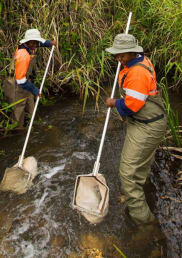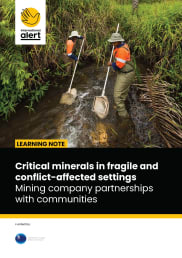Economic development and peace practice note series
This series provides practical advice on peace-conducive economic development in fragile and conflict-affected settings. It looks at challenges around design, monitoring, evaluation and learning.
Economic development covers a wide range of processes and interventions that aim to improve the functioning of an economy at a global, regional, national or local level. These interventions have multiple, often interconnecting, goals ranging from increasing economic growth or promoting equity to boosting entrepreneurship or employment, or tackling barriers to doing business.
In fragile and conflict-affected settings (FCAS), economic development has become part of the ‘toolbox’ for those working in development and peacebuilding. Adapting economic development approaches and methodologies to the specific conditions of FCAS has generated considerable research. It has also raised questions ranging from the role of the private sector in rebuilding the infrastructure of the state to how to increase human capital in post-conflict situations. These questions highlight some of the challenges of promoting economic development where the state is absent or has limited legitimacy, capacity or reach.
Bringing economic interventions and investments into a conflict-affected area can contribute to the processes of building peace but can also risk exacerbating conflict dynamics. Conflict and economic factors interact with each other in both positive and negative ways. It is critical for project designers, implementers and donors to understand how this happens, so that their economic development interventions are relevant, effective and sustainable – both in their economic outcomes and in their contribution to peace.
The purpose of this practice note series
This practice note series seeks to address the design, monitoring, evaluation and learning (DMEL) challenges for peace-conducive economic development interventions in FCAS. These are interventions that are conflict-sensitive and explicitly integrate a peace objective.
These practice notes are intended for project designers and implementers as well as policy-makers working in or on FCAS who wish to see economic development with peace impacts or who want to integrate economic elements into peacebuilding projects. They are not intended as a step-by-step ‘how-to-guide’ but as a tool to spark greater analysis and critical engagement, with the potential to develop more peace-conducive economic development in FCAS.
They consolidate key good practices – ‘what works well’ – based on observation of various economic development programmes in FCAS, analysing gaps and challenges from a peacebuilding perspective. The case studies and examples are taken from the Horn of Africa region, including Kenya, Somalia and Uganda.
Download the practice notes
Practice note 1: Exploring the link between economic development and peacebuilding
Practice note 2: Integrating conflict analysis into peace-conducive economic development programming
Practice note 4: Monitoring, evaluation and learning for peace-conducive economic development
Peace Research Partnership
These practice notes were produced as part of the Peace Research Partnership (PRP), a process of participatory research with partners and communities in conflict-affected areas around the world. The aim of PRP was to generate and share knowledge about how international actors, like INGOs and donors, can best support peaceful and inclusive change in conflict contexts. The research partnership was funded by the UK government. However, the views expressed do not necessarily reflect the UK government’s official policies.






